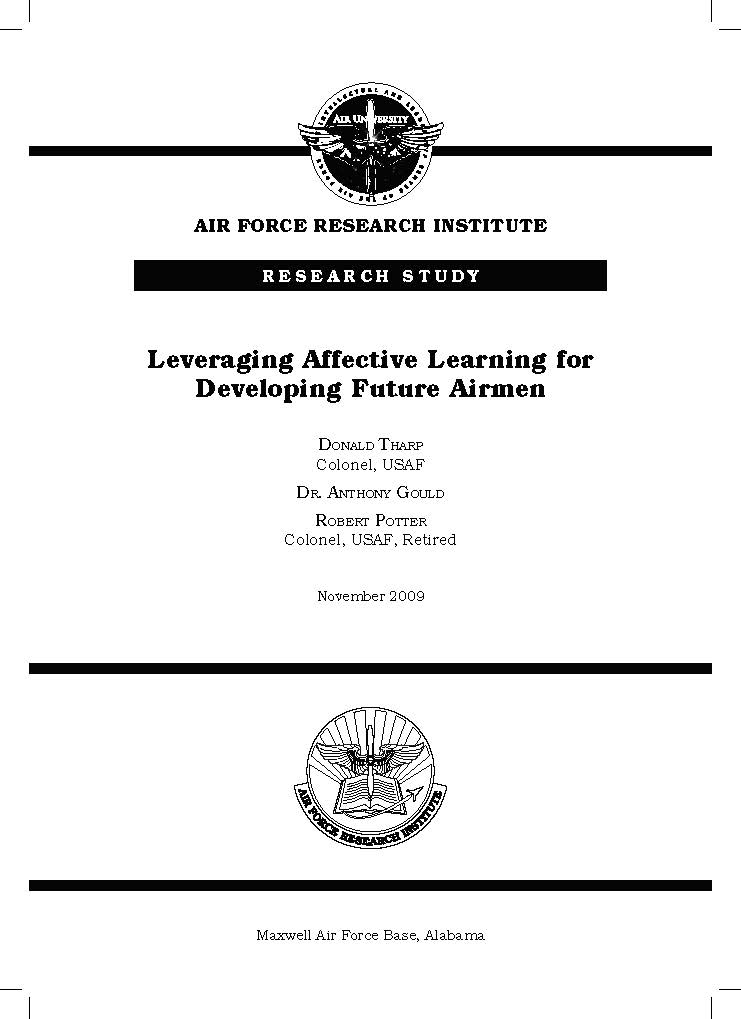 This study is intended to help AF leadership and educators better understand the importance of affective learning in the development of Airmen as life-long learners. Affective learning concerns learners' attitude, motivations, beliefs, and emotions. Unfortunately, the affective domain has been a neglected area because its characteristics are not directly observable or easily measured. Consequently, most educational systems evaluate student performance against cognitive proficiency rather than against affective measures. However, it is important to realize that affect is critical to the overall learning process since cognitive learning depends on attitude, motivation, and other affective factors. It is necessary to include a learner’s emotional/cognitive state in the instructional design process to assist the learner in understanding the efficiency and satisfaction of the learning process. Instructional design that merges affective and cognitive objectives is even more critical as more instruction is conducted through distance learning without a facilitator present. An important Air Force goal should be to partner technology with the affective and cognitive domains to provide distance students with an experience similar to in-residence students.
This study is intended to help AF leadership and educators better understand the importance of affective learning in the development of Airmen as life-long learners. Affective learning concerns learners' attitude, motivations, beliefs, and emotions. Unfortunately, the affective domain has been a neglected area because its characteristics are not directly observable or easily measured. Consequently, most educational systems evaluate student performance against cognitive proficiency rather than against affective measures. However, it is important to realize that affect is critical to the overall learning process since cognitive learning depends on attitude, motivation, and other affective factors. It is necessary to include a learner’s emotional/cognitive state in the instructional design process to assist the learner in understanding the efficiency and satisfaction of the learning process. Instructional design that merges affective and cognitive objectives is even more critical as more instruction is conducted through distance learning without a facilitator present. An important Air Force goal should be to partner technology with the affective and cognitive domains to provide distance students with an experience similar to in-residence students.
Author • Col Donald Tharp, USAF, Dr. Anthony Gould, and Col Robert Potter, USAF, Ret.
Year • 2009
Pages • 34
ISSN • 2831-5251
AU Press Code • AP-10